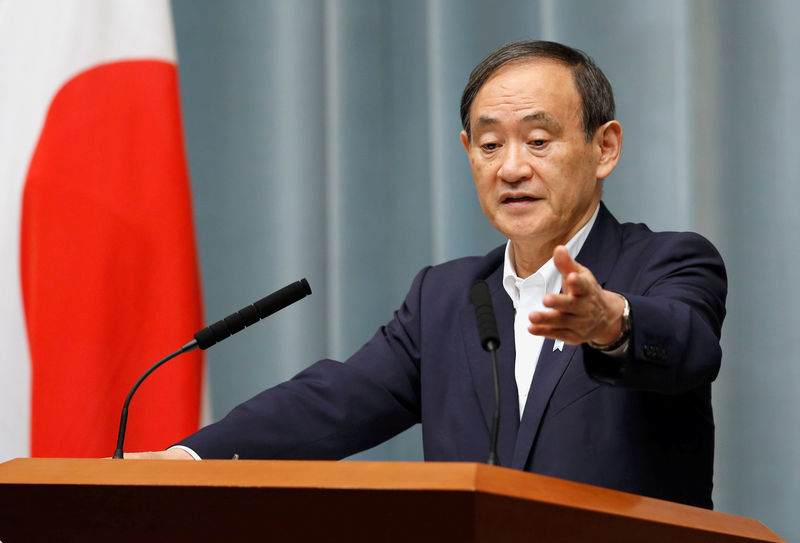By Tetsushi Kajimoto
TOKYO (Reuters) - Japanese policymakers vowed on Wednesday to raise the sales tax to 10 percent as planned in October, following the passage in parliament of the budget bill for the next fiscal year beginning next month.
Speculation lingers among market players that Prime Minister Shinzo Abe may again put off the twice-delayed tax increase as Japan's export-led economy sputters in the face of slowing global growth and the Sino-U.S. trade war.
Proceeding with the politically unpopular hike could be risky as Abe's ruling party faces national elections for the upper house in the summer, some analysts say.
"As I have said before, the sales tax will rise to 10 percent in October as stipulated by the law, unless an incident on the scale of the Lehman shock occurs," Chief Cabinet Secretary Yoshihide Suga told reporters.
Parliament approved on Wednesday a record 101 trillion yen (693.23 billion pounds) draft budget for the coming fiscal year starting April 1.
The general-account budget for the fiscal 2019 features increased spending on welfare, public works and defence on top of steps worth 2 trillion yen to ease the pain of the sales tax hike from the current 8 percent.
The budget spending compares with this year's initial 97.7 trillion yen and sets a record for a seventh straight year, as Japan struggles to curb the industrial world's heaviest debt burden, which is twice the size of its economy.
The spending plan underscores Abe's willingness to avoid a repeat of the economic downturn that followed the last sales tax increase in April 2014.
"I believe sufficient steps have been taken" to provide against a potential shock from the tax hike, Finance Minister Taro Aso told reporters. "I cannot tell exactly what will happen (to the economy) though."
Advisers to the prime minister later urged the government to adopt flexible economic policy measures, including additional fiscal spending, in case risks to the economy materialise.
"Slowdowns in China and Europe could affect Japan's sustainable recovery through both external and domestic demand," the advisers told a meeting of the top economic advisory panel, citing Brexit and the Sino-U.S. trade war among risks to Japan.

Japan must liaise with other "middle power" nations such as Europe, India and ASEAN to strike a balance against the China-U.S. trade war and stabilise global economy as it hosts a summit meeting of the Group of 20 major economies in June, they said.